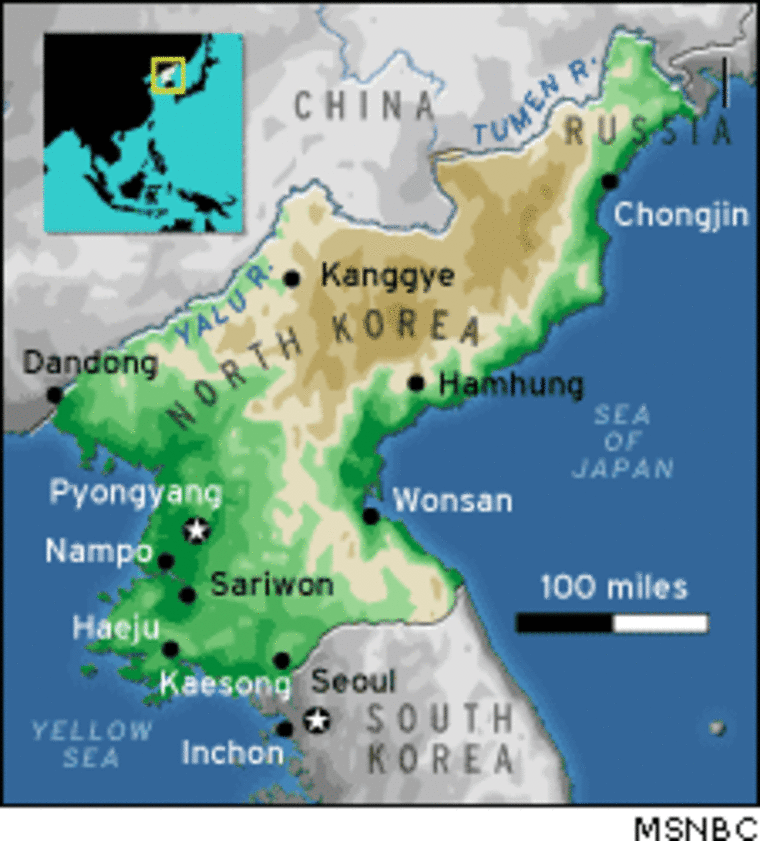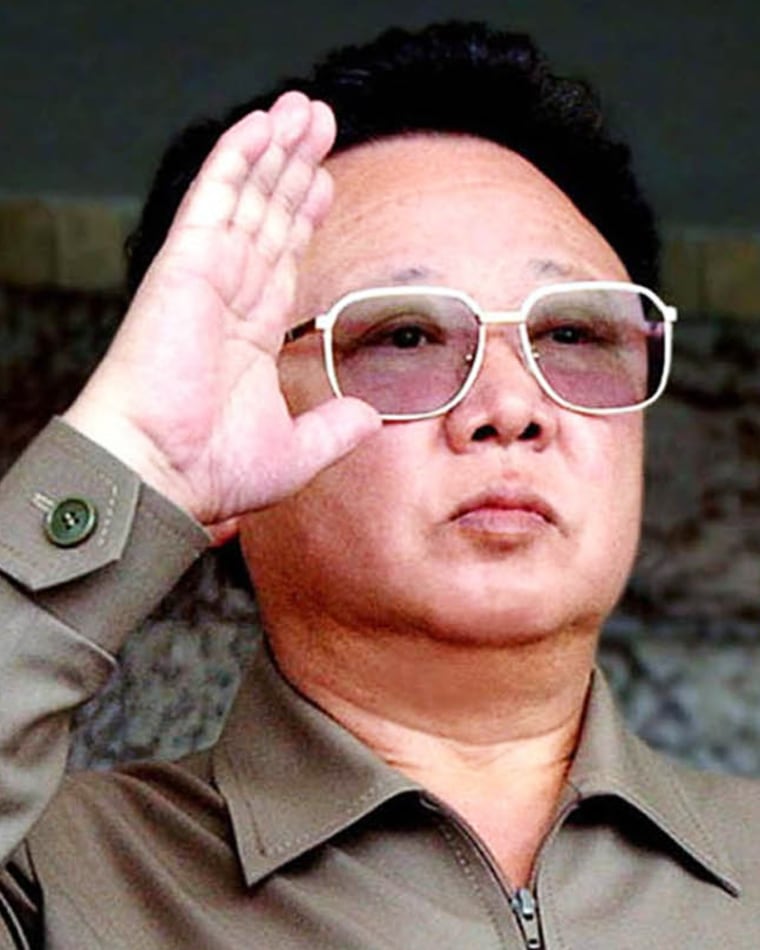It was a spectacle of contradictions. A convoy of black unmarked limousines driving out of Beijing's main train station was captured on camera, providing the visible evidence that a journey of global importance had begun. The secret trip of a reclusive leader to a major capital of the world instantly became public knowledge.
"I have no information to deny … and I also have no authoritative information to confirm the visit," the Chinese Foreign Ministry spokesperson said on the second day of the visit to Beijing by the North Korean leader Kim Jong-Il.
According to various reports, Kim arrived in Beijing on a special armored train Monday morning with an entourage of 40 senior party and government officials and 60 other lower-level functionaries.
This would only be Kim's fourth known trip outside his country, having visited China twice previously and Russia once, since he inherited power from his father, Kim Il Sung, when he died in 1994.

Like his father, he traveled by train. "A son must follow in his father's footsteps in everything," Kim has been quoted as saying. Never mind that he reportedly suffers from a fear of flying.
Timing of visit coincidental?
Kim's surprise trip to Beijing comes on the heels of U.S. Vice President Dick Cheney's visit last week.
As the election season unfolds in the United States and President Bush's foreign policy comes under increased scrutiny, there is heightened impatience in Washington with the protracted negotiations over Pyongyang's nuclear weapons program.
“Time is not necessarily on our side," warned Cheney in Shanghai last week. Cheney's visit and comments were seen as Washington's signal to China to put more pressure on Pyongyang.
China’s key role in talks
China has been playing a balancing act in the nuclear dispute, keen to see a complete halt to North Korea's nuclear ambitions, as Washington demands, but also disposed to accommodate Pyongyang's need for security.
"China's objective is clear, the legitimate security concerns [of North Korea] should be properly addressed and the whole peninsula should be free of nuclear arms," Chinese Foreign Minister Li Zhaoxing recently declared.
At his first meeting on Monday with China's new leader President Hu Jintao, Kim reportedly offered to give up his nuclear weapons program with the contingency that the United States provide a security guarantee and economic compensation, echoing previous demands.
Kim also presented Hu with economic aid requests.
Many analysts do not expect any major breakthrough on the nuclear dispute during the visit, although the top Chinese leaders are reported to have urged Kim to soften his stance toward the United States.
Former President Jiang Zemin, who still commands China's military, reportedly told Kim there was slim threat of the U.S. invading North Korea.
"The most important objectives for Mr. Kim are to expand economic aid and promote bilateral friendship, and as for the nuclear issue, talks will be limited to reaffirming the principle of peaceful solution,” one Chinese official said, according to local media reports.
China's checkbook diplomacy
"For Kim, one purpose is to ask China to continue providing economic assistance in these difficult times," said Paul Harris, Northeast Asia expert at Hong Kong's Lingnan University.
Power shortages have virtually brought the North Korean economy to a standstill. Food shortages and starvation have driven thousands of North Koreans to cross China’s borders as refugees, and many more have defected to South Korea.
According to one report, China provides 70 percent of North Korea's energy needs and 40 percent of its food.
It is not known for certain how much new economic assistance China will provide Kim with.
Last October, China's Vice-Premier Wu Bangguo visited Pyongyang and reportedly offered a $50 million grant, an incentive that led Pyongyang to join the subsequent second round of six-nation nuclear negotiations in Beijing.
Kim's going out of his way to travel to Bejing could mean higher costs for China's checkbook diplomacy.
"What China gets is stability, predictability," Harris said. "China gets to keep its hands on the control valve, so to speak, so that North Korea doesn't lash out at everybody as in the past, and that's not too bad."
Kim is known as an avid technology and Internet buff and reportedly toured Beijing's equivalent of Silicon Valley.
In 2001, he enthusiastically toured Shanghai's stock exchange and other high-tech enterprises. After Beijing, he will reportedly visit more joint-venture operations in Northeast China before heading home.
"China wants to show Kim there is a way to survive, to stay in power and even be successful," said Harris, adding that Chinese reform is having an influence on North Korea, which has begun some market-style changes.
